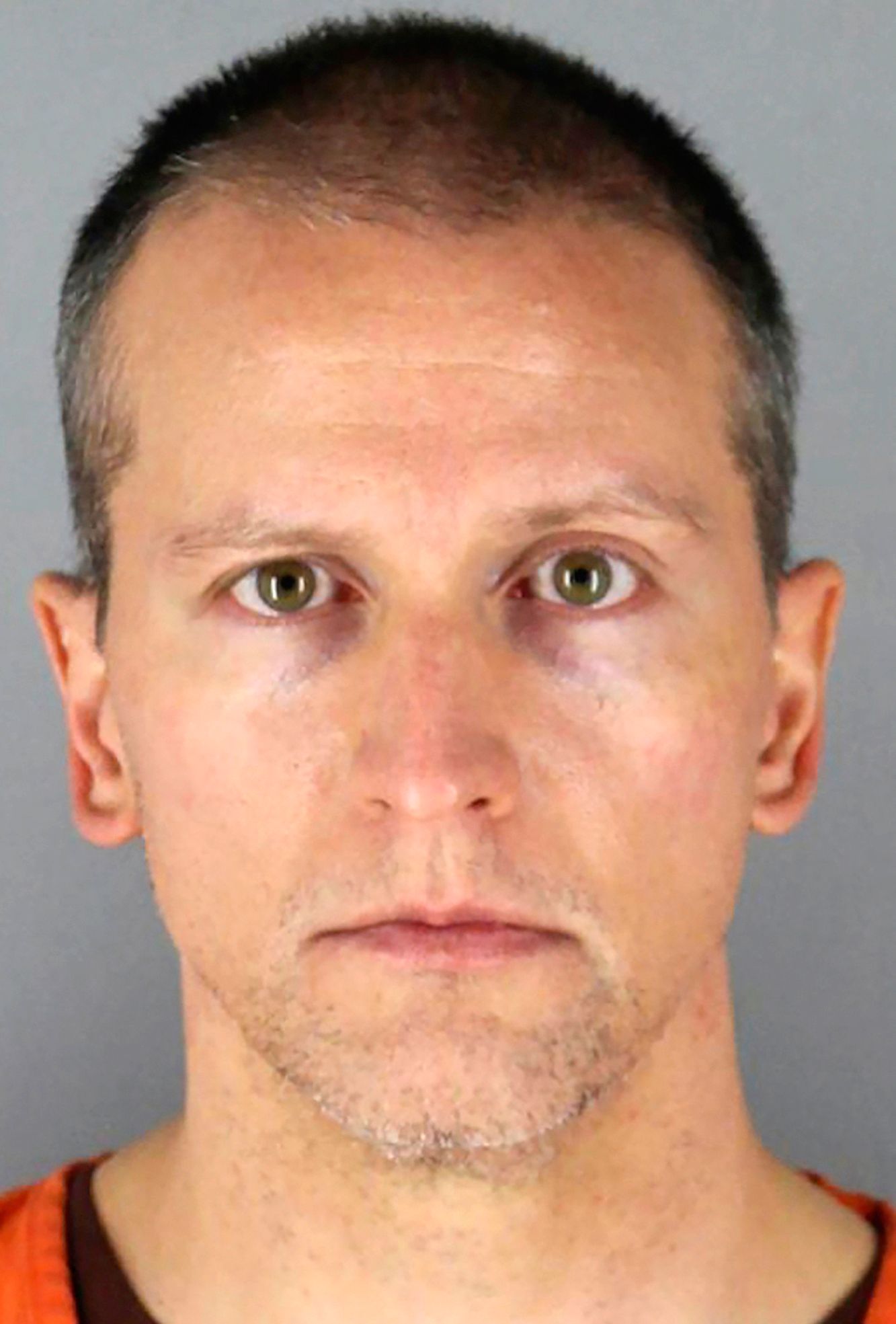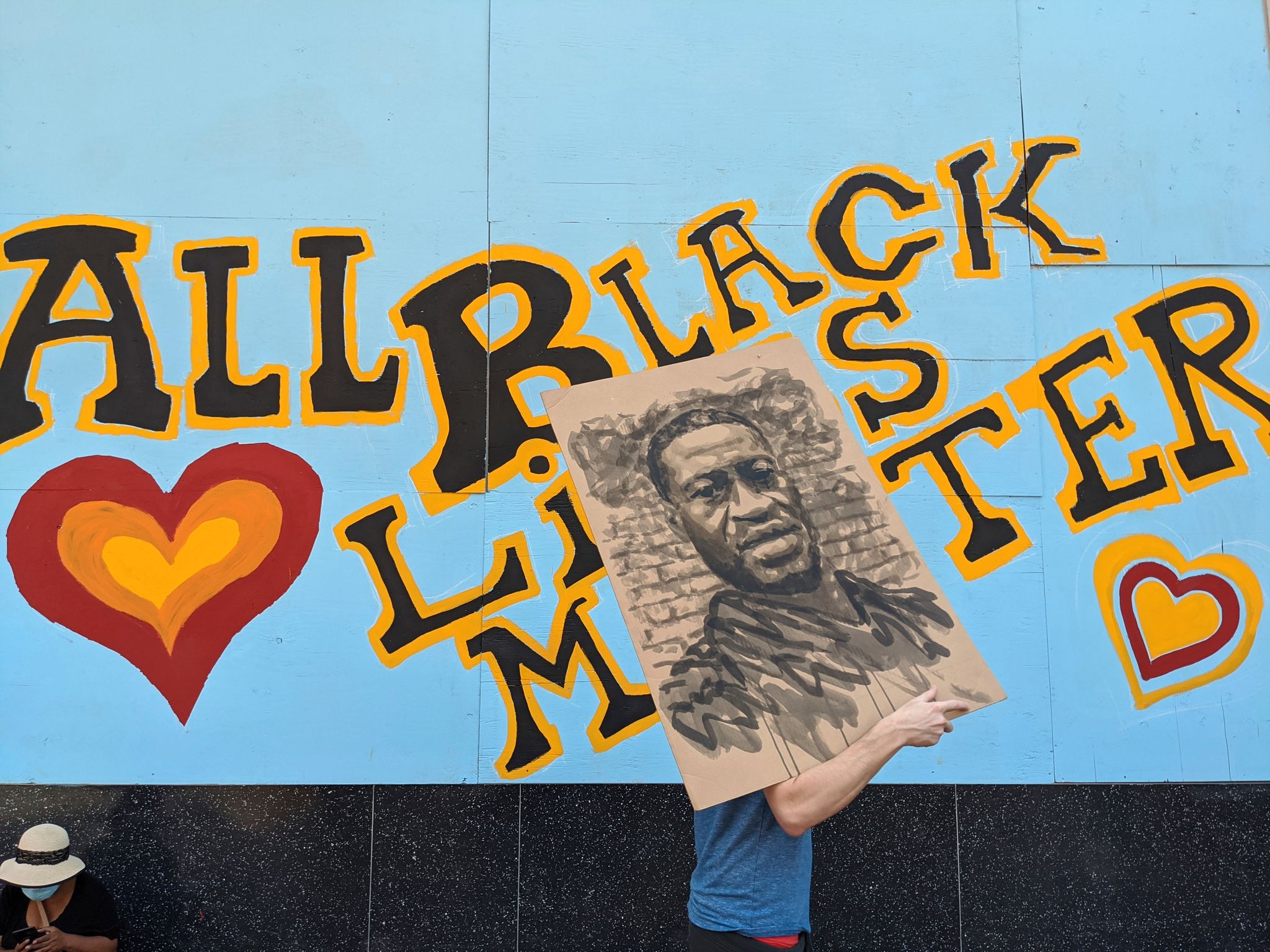The assassination of George Floyd gained enormous political significance with protests against racism worldwide. The trial against ex-policeman Derek Chauvin is now starting.
A protester with a picture of George Floyd in Hollywood. Foto: Damian Dovarganes / AP / NTB
––
Former police officer Derek Chauvin, who is charged with the premeditated murder of George Floyd on May 25 last year. Foto: Hennepin County Sheriff’s Office via AP / NTB ––
On Monday, the trial will begin, which will decide whether the policeman who pressed his knee against Floyd’s neck will be found guilty of murder and punished for it. If he is acquitted, it will probably lead to new major protests against racism in the United States. If he is convicted, it is the opponents of the Black Life’s Matter movement who will react, many of whom are supporters of Donald Trump. The assassination has, among other things, led to the Congress these days considering proposals for a major police reform. It bears George Floyd’s name, and was adopted on Wednesday in the House of Representatives by a narrow majority and forwarded to the Senate. If the reform is approved, neck grabs will be banned. The police will also not be able to stop people on the basis of race, so-called race profiling. The now fired policeman Derek Chauvin is charged with premeditated murder and negligent homicide. During the arrest of Floyd on an open street in Minneapolis, he held his knee against the 46-year-old’s neck for about nine minutes. Although Floyd repeatedly said he could not breathe, he kept his knee. The incident was filmed by a number of spectators who also asked the policeman to remove his knee. The question of exactly how long the knee was pressed against Floyd’s neck will apparently become a topic during the trial. The first few days are used to select a jury before the trial itself begins. The first charge stated that the pressure lasted for 8 minutes and 46 seconds, numbers that were later used as a symbol in protests against racism worldwide. Since then, the length has been adjusted both up and down. Now the prosecution has landed that the knee was there for at least 9 minutes, possibly as long as 9 minutes and 31 seconds. The documentation is, among other things, taken from police cameras that were attached to the bodies of the other police officers who were present. All three – Thomas Lane, J. Kueng and Tou Thao – are charged with complicity and incitement to premeditated murder and negligent homicide, but they will not be brought to justice until August. John Stiles, a spokesman for the Attorney General’s Office, says how long Floyd was pushed down will be presented as evidence during the trial. But he will not comment further on the matter. Tom Heffelfinger, a former Minnesota state attorney who has no connection to the case, says it is common for prosecutors to fine-tune details when building a case. He also says that the length of the knee press will not be important until a prosecutor presents this to the jury. He believes the time span will be very relevant during the trial as it is expected that the prosecution and the defenders will argue about the cause of death, whether it was the knee that led to Floyd’s death or underlying health problems. According to Heffelfinger, the length of the knee pressure could also say something about Chauvin’s state of mind, and it could be used by the prosecution to argue that the policeman acted with intent, and that it was completely unnecessary to have control of the 46-year-old. – You can see it in a video from a spectator, Chauvin had control of Floyd all the time. He did not have to press his knee against his neck to maintain that control, he says. But not everyone thinks it will matter if Floyd’s neck was squeezed for a little less or a little more than 9 minutes. Among them is Toshira Garraway, founder of a support group for families affected by police violence. She thinks it is obvious that Chauvin kept the pressure long enough to think about what he was doing. – He heard the man complain that he could not breathe. If it was 2 minutes, 5 minutes or 10 minutes, then he was fully aware of it anyway. When Floyd said he could not breathe, he should have removed his knee, she says. –
A matter of seconds
– Over 9 minutes
Presented as evidence
Unnecessary or necessary?
Related posts:


